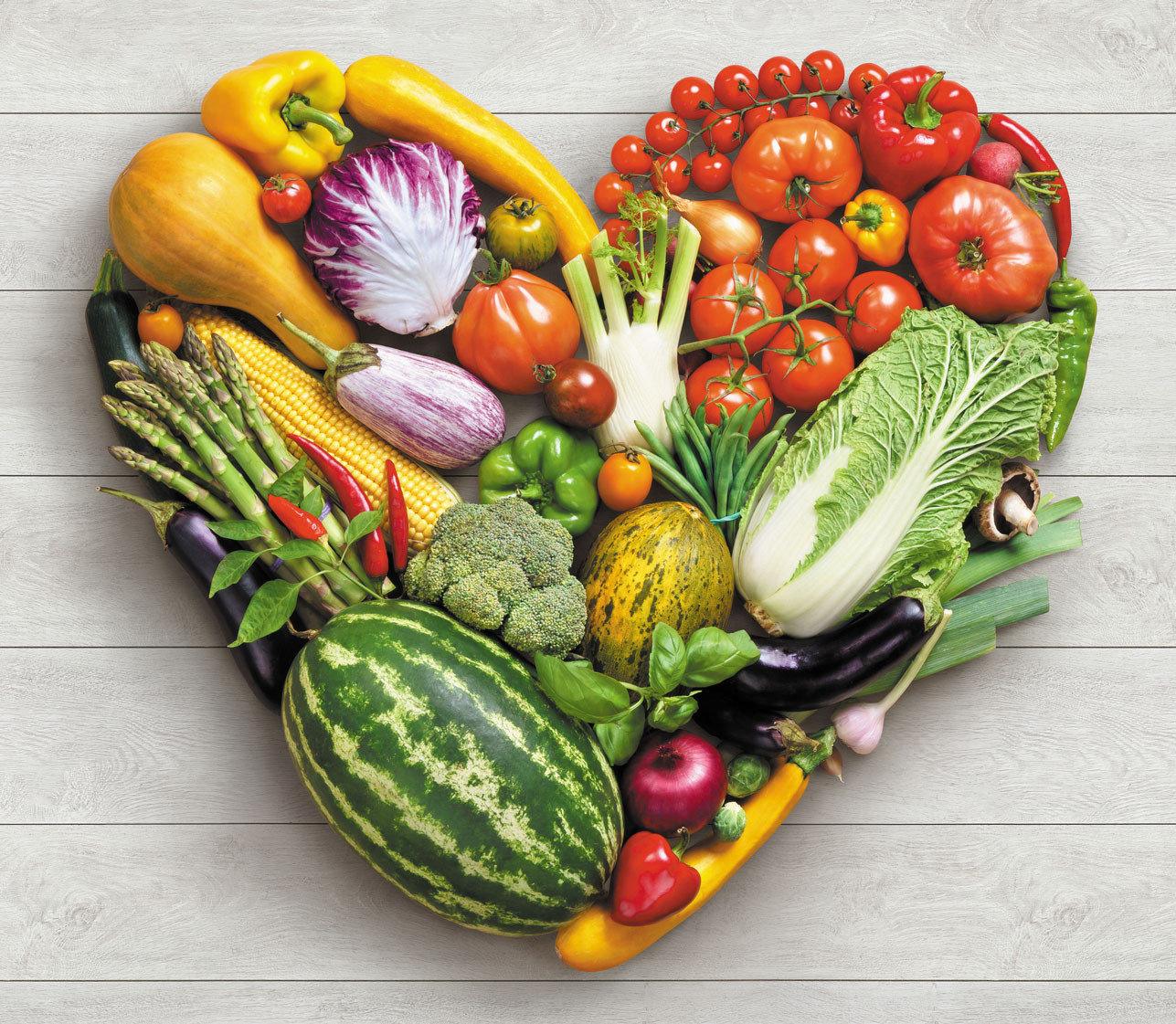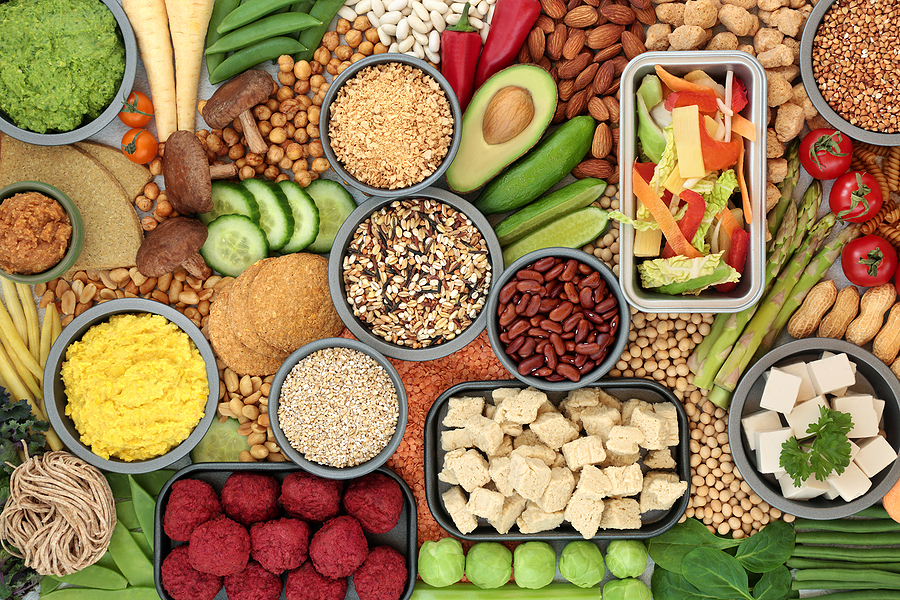3 Plant Based Beef Recipes That Will Impress Even Meat Lovers
Wiki Article
All About Healthy Food: Benefits of Enjoying Plant Based Options
The discussion bordering plant-based diets has obtained considerable interest in the last few years. Lots of people are checking out the possible health benefits, dietary advantages, and ecological effects connected with these dietary choices. As people come to be a lot more mindful of their food's influence on wellness and sustainability, inquiries arise about the functionalities of taking on such a way of life. What certain changes can one anticipate, and just how might these options reshape not only personal wellness yet also the world's future?Recognizing Plant-Based Diet Plans
Although several individuals associate plant-based diets generally with vegetarianism or veganism, these diet regimens can incorporate a large range of eating patterns that focus on entire, minimally refined plant foods. Such diet plans commonly include fruits, vegetables, whole grains, nuts, seeds, and legumes, while limiting or removing animal items. This flexibility permits people to tailor their nutritional choices according to individual choices and dietary demands. Some might take on a mostly plant-based diet while still periodically consuming meat or dairy products, typically referred to as a flexitarian approach. The focus remains on including more plant foods, which can lead to a varied selection of flavors and dishes. Recognizing these various analyses of plant-based eating is essential for valuing its access and charm in modern food culture.Health Conveniences of Plant-Based Foods
The health and wellness benefits of plant-based foods are substantial, providing a nutrient density benefit that supports overall health. Research study indicates that these foods can boost heart wellness and play a necessary role in effective weight management. By incorporating much more plant-based alternatives, individuals might improve their nutritional options and promote long-lasting health.Nutrient Density Advantage
Nutrient thickness plays a crucial duty in the health and wellness advantages of plant-based foods, making them an engaging selection for those looking for a balanced diet. Plant-based foods, such as fruits, veggies, vegetables, nuts, and whole grains, are frequently rich in important vitamins, minerals, and antioxidants while being lower in calories. This high nutrient density allows individuals to consume fewer calories while still meeting their nutritional demands. Additionally, these foods are packed with nutritional fiber, advertising gastrointestinal wellness and helping in weight management. By including nutrient-dense plant-based alternatives, consumers can boost their total health, sustain their body immune systems, and decrease the threat of chronic conditions. Eventually, the nutrient thickness of plant-based foods emphasizes their value in a health-conscious way of life.Heart Health And Wellness Enhancement

Weight Management Assistance
Along with promoting heart health, a plant-based diet regimen can substantially help in weight management. This nutritional method emphasizes whole foods such as fruits, vegetables, vegetables, nuts, and whole grains, which are generally reduced in calories and higher in fiber compared to animal-based items. The high fiber material aids enhance satiation, minimizing total calorie intake. Plant-based diet regimens are typically abundant in important nutrients while reduced in unhealthy fats, making it easier to maintain a healthy and balanced weight. Study shows that individuals that adopt a plant-based way of life tend to have reduced body mass indexes (BMIs) and experience more effective weight-loss contrasted to those that consume meat-heavy diet plans. Welcoming plant-based options is a tactical choice for reliable weight management.
Nutritional Value of Plant-Based Ingredients
Plant-based components are abundant in crucial nutrients, offering a varied variety of vitamins, minerals, and anti-oxidants that add to total wellness. A contrast of protein sources discloses that while animal products are usually watched as superior, lots of plant-based alternatives supply ample healthy protein and other helpful compounds. Comprehending the nutritional value of these active ingredients can help people make educated nutritional options.Essential Nutrients in Plants
Nutrient-rich components found in plants use a diverse variety of vital minerals and vitamins that contribute substantially to general wellness. These components are abundant in vitamins A, C, and K, which sustain immune feature, vision, and blood clotting, specifically. On top of that, plants offer essential minerals such as potassium, magnesium, and calcium, important for heart wellness, muscle feature, and bone toughness. The visibility of fiber in plant-based foods aids food digestion and advertises a healthy intestine microbiome. Anti-oxidants, located generously in vegetables and fruits, aid battle oxidative stress and anxiety and lower swelling. Lots of plant foods are low in calories yet high in nutrients, making them an outstanding option for those looking for to maintain a healthy and balanced weight while guaranteeing excellent nutrient consumption.
Comparing Healthy Protein Resources
Protein sources differ significantly in their dietary profiles, with plant-based active ingredients using distinct benefits. Unlike animal healthy proteins, which often contain saturated fats and cholesterol, plant healthy proteins tend to be lower in these undesirable elements. Legumes, nuts, seeds, and whole grains are rich in important amino acids, fiber, vitamins, and minerals. For circumstances, lentils supply high healthy protein material alongside substantial iron and folate, while quinoa is a total protein, supplying all nine necessary amino acids. Furthermore, plant-based healthy proteins are frequently gone along with by anti-oxidants and phytochemicals that sustain general health. The change to plant-based healthy protein resources not just enhances nutritional intake but likewise aligns with sustainable nutritional methods, lowering environmental effect and promoting lasting health and wellness benefits.Ecological Effect of Plant-Based Eating
As understanding of climate adjustment grows, lots of people are checking out lasting nutritional selections that can substantially decrease their environmental impact. Plant-based consuming has actually arised More Help as a significant contributor to lowering greenhouse gas exhausts, which are largely connected with animals production. The growing of fruits, vegetables, grains, and legumes normally requires less sources, such as Clicking Here water and land, compared to pet farming. Additionally, plant-based diets can lead to reduced deforestation, as less land is required for grazing animals or expanding animal feed. By moving towards plant-based options, consumers can sustain biodiversity and promote much healthier ecosystems. Overall, embracing plant-based eating not just benefits personal health and wellness but also represents a vital step toward environmental sustainability and conservation initiatives.Overcoming Common Misconceptions
While lots of individuals recognize the advantages of a plant-based diet plan, a number of mistaken beliefs usually discourage them from totally accepting this lifestyle. A common idea is that plant-based diets lack sufficient healthy protein; nevertheless, various plant sources, such as beans, nuts, and tofu, supply ample healthy protein. Furthermore, some presume that this diet is expensive, when in reality, staples like beans, rice, and seasonal veggies can be quite budget friendly. Another mistaken belief is that plant-based eating is excessively limiting, whereas it actually uses a varied array of foods and flavors. Ultimately, numerous worry that a plant-based diet plan might bring about deficiencies, yet with proper planning, people can obtain all required nutrients, including vitamins and minerals, while delighting in a wide variety of tasty meals.Tips for Transitioning to a Plant-Based Way of life
Making the shift to a plant-based way of life can be an improving experience, though it commonly requires some advice to navigate the first modifications. Initially, individuals are motivated to begin gradually, integrating even more fruits, vegetables, vegetables, and entire grains into their dishes while lowering meat and dairy products usage. Meal preparation is essential; preparing a regular food selection can aid ease the modification and stop final unhealthy choices. Checking out brand-new dishes and cooking approaches can likewise improve the experience and keep excitement about plant-based eating. In addition, joining support groups or areas can offer motivation and share useful pointers. Staying notified regarding nutrition guarantees balanced dishes, preventing shortages while cultivating a healthy and balanced, gratifying plant-based way of life.
Delicious Plant-Based Dish Concepts
Checking out scrumptious plant-based meal ideas can motivate people to accept a much more nutritious diet. One preferred choice is a passionate quinoa salad, featuring cherry tomatoes, cucumber, and a spicy lemon-tahini clothing. Another favorite is a mouthwatering lentil stew, loaded with carrots, celery, and fragrant herbs, excellent for a comforting dinner. For breakfast, over night oats made with almond milk, chia seeds, and covered with fresh berries give a nutritious begin to the day. Furthermore, a vivid veggie stir-fry with tofu and a variety of colorful veggies can be a quick yet satisfying meal. Ultimately, luscious avocado salute on whole-grain bread, sprayed with seeds and spices, provides a basic yet savory treat. These dishes showcase the variety and richness of plant-based eating.
Often Asked Questions
Can a Plant-Based Diet Regimen Give Enough Healthy Protein?
The inquiry of whether a plant-based diet plan can provide enough protein prevails. Countless resources, including beans, nuts, seeds, and whole grains, can fulfill protein requires successfully, supporting a well balanced and healthy diet for people.Are Plant-Based Diets Appropriate for Children?
The viability of plant-based diets for kids depends on cautious planning. Appropriate nutrients must be ensured, consisting of vitamins, proteins, and minerals. With appropriate advice, such diet plans can sustain healthy growth and growth in children.Exactly how Do I Eat Out on a Plant-Based Diet?
Eating in restaurants on a plant-based diet regimen involves seeking dining establishments with diverse menus, requesting alterations, and exploring vegan-friendly choices. Preparation ahead and communicating dietary choices can boost the dining experience while maintaining nutritional selections.What Are Common Allergens in Plant-Based Foods?
Typical irritants in plant-based foods consist of soy, gluten, nuts, and seeds - Sugar Free Sauces. People adhering to a plant-based diet regimen should understand these irritants and check out tags meticulously to avoid unfavorable reactions and ensure risk-free usageCan Plant-Based Diets Assist With Weight Loss?
Research study indicates that embracing a plant-based diet regimen may promote weight-loss because of its normally reduced calorie thickness and greater fiber web content. This mix can improve satiation, assisting individuals manage their caloric intake effectively. Many individuals link plant-based diet regimens mostly with vegetarianism or veganism, these diet regimens can incorporate a large variety of eating patterns that prioritize entire, minimally refined plant foods. Nutrient thickness plays a crucial duty in the wellness advantages of plant-based foods, making them a compelling choice for those looking for a balanced diet regimen. Plant-based diet regimens have actually been shown to considerably improve heart health, as they often have components that support cardiovascular feature. In addition to promoting heart wellness, a plant-based diet plan can considerably assist in weight a fantastic read administration. A typical idea is that plant-based diet plans lack enough healthy protein; however, countless plant resources, such as legumes, nuts, and tofu, give adequate protein.Report this wiki page